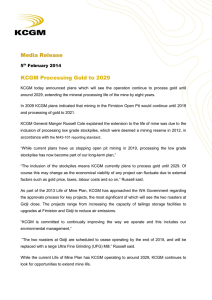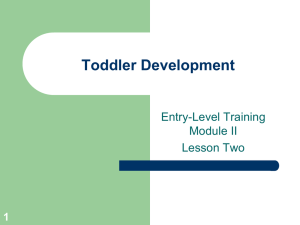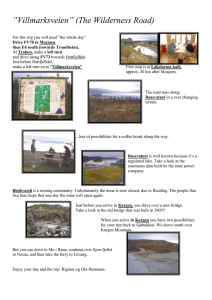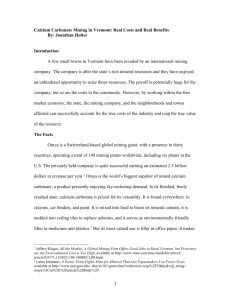Notre Dame Catholic High School 157 McKenzie St. Carleton Place
advertisement
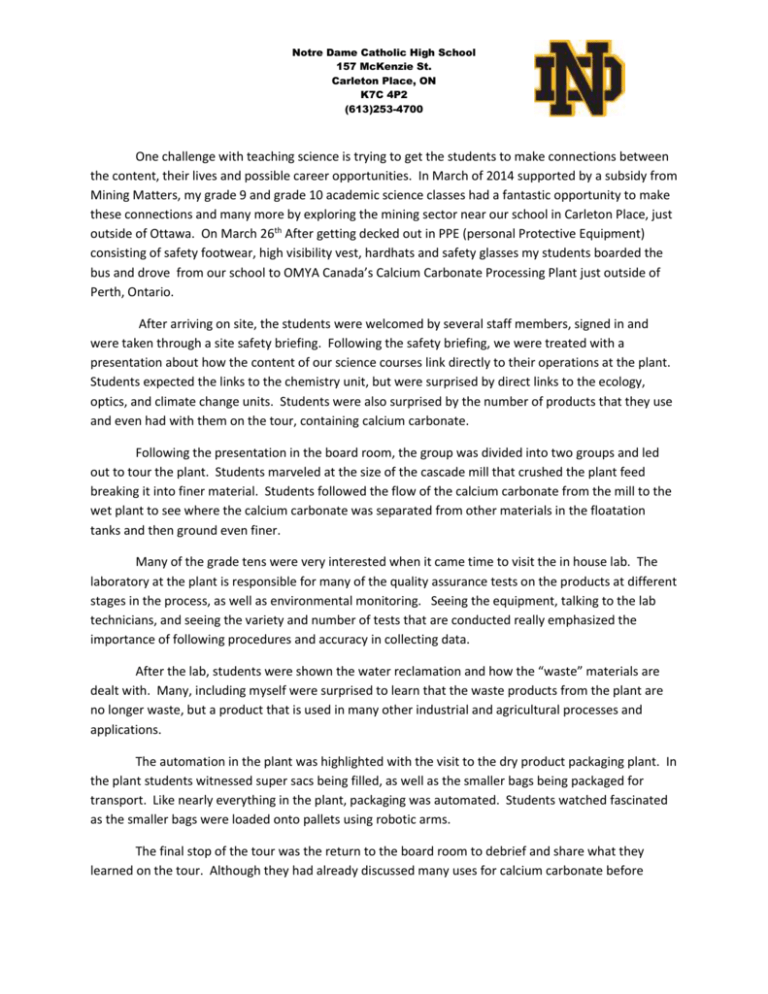
Notre Dame Catholic High School 157 McKenzie St. Carleton Place, ON K7C 4P2 (613)253-4700 One challenge with teaching science is trying to get the students to make connections between the content, their lives and possible career opportunities. In March of 2014 supported by a subsidy from Mining Matters, my grade 9 and grade 10 academic science classes had a fantastic opportunity to make these connections and many more by exploring the mining sector near our school in Carleton Place, just outside of Ottawa. On March 26th After getting decked out in PPE (personal Protective Equipment) consisting of safety footwear, high visibility vest, hardhats and safety glasses my students boarded the bus and drove from our school to OMYA Canada’s Calcium Carbonate Processing Plant just outside of Perth, Ontario. After arriving on site, the students were welcomed by several staff members, signed in and were taken through a site safety briefing. Following the safety briefing, we were treated with a presentation about how the content of our science courses link directly to their operations at the plant. Students expected the links to the chemistry unit, but were surprised by direct links to the ecology, optics, and climate change units. Students were also surprised by the number of products that they use and even had with them on the tour, containing calcium carbonate. Following the presentation in the board room, the group was divided into two groups and led out to tour the plant. Students marveled at the size of the cascade mill that crushed the plant feed breaking it into finer material. Students followed the flow of the calcium carbonate from the mill to the wet plant to see where the calcium carbonate was separated from other materials in the floatation tanks and then ground even finer. Many of the grade tens were very interested when it came time to visit the in house lab. The laboratory at the plant is responsible for many of the quality assurance tests on the products at different stages in the process, as well as environmental monitoring. Seeing the equipment, talking to the lab technicians, and seeing the variety and number of tests that are conducted really emphasized the importance of following procedures and accuracy in collecting data. After the lab, students were shown the water reclamation and how the “waste” materials are dealt with. Many, including myself were surprised to learn that the waste products from the plant are no longer waste, but a product that is used in many other industrial and agricultural processes and applications. The automation in the plant was highlighted with the visit to the dry product packaging plant. In the plant students witnessed super sacs being filled, as well as the smaller bags being packaged for transport. Like nearly everything in the plant, packaging was automated. Students watched fascinated as the smaller bags were loaded onto pallets using robotic arms. The final stop of the tour was the return to the board room to debrief and share what they learned on the tour. Although they had already discussed many uses for calcium carbonate before Notre Dame Catholic High School 157 McKenzie St. Carleton Place, ON K7C 4P2 (613)253-4700 starting the tour, students continued to be surprised by additional uses that kept being mentioned throughout the tour. The following day started at the school with the grade nines putting on PPE for a trip to OMYA Canada’s Tatlock Mine. After a scenic drive through Lanark County, we arrived at the mine. On arriving at the mine, the students were ushered into the main office for a site safety briefing and a general overview of the history of the mine. From the office students re-boarded the bus for a tour of the surface mine. Due to the size of the mine and the ice and snow still remaining in much of the mine, much of the tour was conducted from the bus. The first stop was at the onsite crushing and sorting plant. Here the calcium carbonate is reduced in size to a diameter that can be fed into the processing plant in Perth. It is also sorted by quality and some is crushed and classified by size to be used as aggregate. Students witnessed a truck being loaded with calcium carbonate to be taken t to the plant in Perth. The first view of the mine itself was by driving along the western edge access road, along the top of the mine pit wall. The size of the mine surprised many, including our bus driver who had not seen the mine in over a decade. The first stop where students could get off of the bus was to look at the mine from near the visitors overlook. The scale of the mine came clearly into focus as students could see the large trucks being loaded. The next stop was a lower bench in the mine where students could get off the bus and watch the trucks operating from close up. From this perspective even from a safe viewing distance, the large size of the trucks was apparent. Through out the tour the mine manager and environmental engineer continued to point out uses for the calcium carbonate and different practices and activities that were occurring around the mine site. As the mine is in the process of being widened and deepened, students were able to see work on a new access ramp that was under construction as well as a new and larger settling pond. The mine tour finished with a visit to a small pile of 1” aggregate, where students were encouraged to take samples home with them. After loading onto the bus we thanked and bid farewell to our guides for the day. Rob Millard Notre Dame Catholic High School Carleton Place, ON Notre Dame Catholic High School 157 McKenzie St. Carleton Place, ON K7C 4P2 (613)253-4700 Cost of the trip : Students involved: March 26th March 26th-20 grade 10 students 1 student teacher, 1 teacher $271.99 bus $245 supply coverage $516.99 March 27th March 27th-25 grade 9 students 1 student teacher, 1 teacher $271.99 bus $245 supply coverage $516.99 Total $1033 Total-45 students, 1 student teacher, 1 teacher Notre Dame Catholic High School 157 McKenzie St. Carleton Place, ON K7C 4P2 (613)253-4700 Thank you Mining Matters. Mr. Millard’s Grade 10 academic Science class OMYA Plant. Perth, ON March 26th, 2014. Notre Dame Catholic High School 157 McKenzie St. Carleton Place, ON K7C 4P2 (613)253-4700 Thank you Mining Matters. Mr. Millard’s Grade 9 academic science class OMYA Calcium Carbonate Mine, Tatlock, ON March 27th, 2014.





